2025 Agenda Overview
Workforce & Leadership
Successful digital transformation depends on the people, processes, and business strategies behind it. This theme highlights the leadership and workforce development required to drive meaningful change. Who should attend: HR and Talent Development Professionals, Leaders and Executives
Automation & Productivity
Empowering the healthcare workforce with automation, upskilling initiatives, and digital productivity tools to enhance service delivery. Who should attend: Clinical and non-clinical NHS staff, operational managers, HR teams, and digital transformation leaders.
AI & Emerging Technology
Discover how AI, automation, and next-gen technologies are revolutionising healthcare, improving patient outcomes, and increasing system efficiency. Covered across all theatres, with a dedicated AI Spotlight showcasing breakthrough innovations.
Patient Safety
As digital solutions reshape healthcare, ensuring patient safety remains paramount. Sessions will explore how technology reduces errors, enhances care quality, and strengthens patient outcomes. Who should attend: Patient safety officers, clinicians, and digital health professionals.
Integrated Care & Connected Data
A data-driven NHS is key to delivering joined-up, person-centred care. This theme examines interoperability, system integration, and cross-sector collaboration to improve patient outcomes. Who should attend: NHS executives, IT specialists, health and care providers, data analysts, and policymakers.
Patient Engagement & User-Centred Design
A deep dive into how digital transformation enhances patient experience, with a focus on prevention, personalisation, and accessibility. Who should attend: UX designers, digital leads, and patient engagement specialists.
Health Inequalities & PHM
Leveraging data analytics, AI, and digital tools to address health disparities and enhance population health. This theme will explore risk stratification, remote monitoring, and social determinants of health. Who should attend: Public health leaders, commissioners, and digital strategists.
Cyber Security
With the growing reliance on digital health, cyber security is critical. Sessions will focus on data protection, risk management, and safeguarding patient information. Who should attend: Cybersecurity professionals, IT teams, healthcare leaders, and compliance officers.
Efficient Systems & Infrastructure
Optimising health IT, interoperability, and digital infrastructure to enhance scalability, efficiency, and system resilience. Key discussions will include cloud computing, EHR interoperability, and digital twins. Who should attend: CIOs, IT architects, and transformation leaders.
Remote Monitoring & Personalised Care
Focusing on patient-facing digital tools, prevention strategies, and remote monitoring technologies to enhance self-management and early intervention. Who should attend: Clinicians, health tech providers, and local authority representation.
Primary Care
Examining how telehealth, AI triage, and remote monitoring are transforming patient access, efficiency, and engagement in primary care. Who should attend: GPs, digital health leads, and commissioners.
Social Care
Exploring how digital integration between health and social care enhances care coordination, patient outcomes, and workforce efficiency. Who should attend: Social care leaders, local authority representatives, and digital integration specialists.
Mental Health
Sessions will showcase emerging technologies, such as AI-powered therapy, digital mental health tools, and VR are improving access and early intervention. Who should attend: Mental health professionals, digital health providers, and policymakers.
Digital Estates
Future-proofing healthcare facilities to support advanced digital infrastructure, IoT adoption, and remote care capabilities. Who should attend: Estates managers, CIOs, and digital transformation leaders.
Women’s Health
A dedicated focus on women’s health for 2025; addressing personalised care, AI-driven diagnostics, and reproductive health solutions. Who should attend: Women’s health specialists, clinicians, and technology developers.
Pharmacy & Personalised Medicine
Explore how digital innovation is transforming pharmacy services. From e-prescribing and medicines optimisation to pharmacogenomics and real-time patient data. Who should attend: Pharmacists, clinical leads, genomics specialists, and digital therapeutics providers.
Private Healthcare
This theme explores how private providers are using digital platforms, virtual care, and advanced diagnostics to meet rising patient expectations. Who should attend: Private healthcare executives, digital directors, and service designers.
Elective Backlog & Patient Flow
Addressing the elective care backlog and improving patient flow are critical NHS priorities. Sessions will focus on digital scheduling tools, pathway redesign, virtual wards, and real-time capacity management to support operational recovery and efficiency. Who should attend: Operational Leads, Directors of Operations/Elective Recovery Leads, Clinical.
CPD for healthcare professionals
The aim of Continuing Professional Development (CPD) in healthcare is to enhance patient care quality and safety. It's your responsibility as a healthcare professional to identify your CPD needs, plan how to address them, and engage in activities that support your professional growth. Attending the HETT Show is an excellent way to stay updated on industry advancements. It's free for NHS, public sector, not-for-profit, and academic/research workers.
As an accredited CPD provider, we email all attendees a Certificates of Attendance post-conference.
Recording your CPD
Healthcare professionals are required to undertake 35 hours of relevant continuing professional development (CPD) over three years before renewing your registration. 20 hours must involve participatory learning. You must maintain accurate CPD records including a description of the topic and how it’s related to your practice, dates, hours (including participatory), relevant Code section, and evidence of completion. Click the link to read a useful article on ‘CPD requirements for Healthcare Professionals‘ written by CPD.



